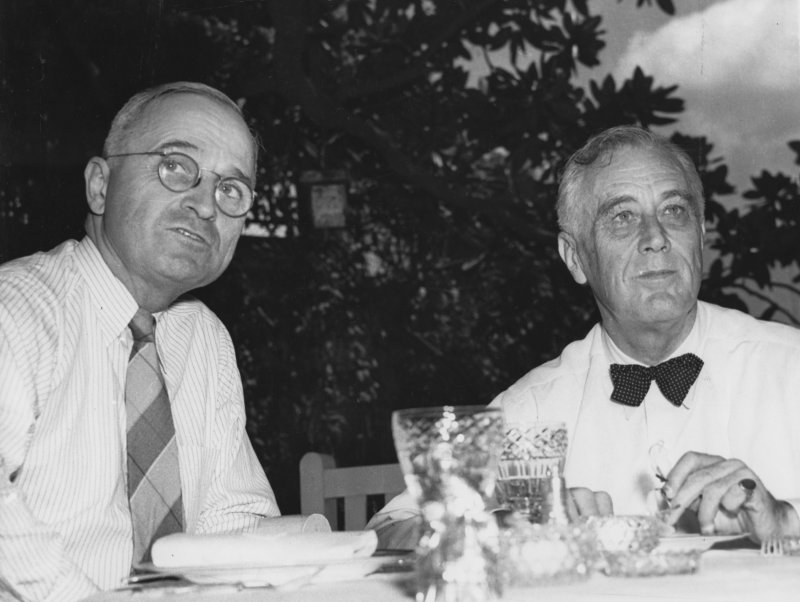In 1805, the Lewis and Clark Expedition arrived at the Pacific Ocean.
In 1874, the first cartoon depicting the elephant as the symbol of the Republican Party was printed in Harper's Weekly.
In 1916, Democratic President Woodrow Wilson was re-elected and Republican Jeannette Rankin of Montana became the first woman elected to the U.S. House of Representatives.
In 1917, Bolsheviks overthrew the Russian government in St. Petersburg.
In 1940, only four months after its completion, the Tacoma Narrows Bridge in Washington state, the third longest suspension bridge in the world at the time, collapsed. No one was injured.
In 1944, U.S. President Franklin D. Roosevelt was re-elected to a fourth term during World War II. (Roosevelt, the only U.S. president to serve more than two terms, died the following April and was succeeded by Harry S. Truman.)
In 1972, Republican Richard Nixon was re-elected as president of the United States, defeating Democrat George McGovern.
In 1983, a bomb exploded in the U.S. Capitol, causing heavy damage just outside the Senate chamber. There were no injuries.
In 1985, Colombian troops ended a 27-hour siege of Bogota's Palace of Justice by 35 M-19 guerrillas. Eleven Supreme Court judges were among the 100 people killed.
In 1987, U.S. Supreme Court nominee Douglas Ginsburg withdrew his 9-day-old candidacy following criticism of his judicial ethics and his disclosure that he had used marijuana.
In 1989, "Night Stalker" Richard Ramirez was formally sentenced in Los Angeles to die in the gas chamber for 13 killings. (Ramirez died of lymphoma in prison June 7, 2013.)
In 1991, basketball star Earvin "Magic" Johnson disclosed he was HIV-positive and announced he was retiring from the NBA's Los Angeles Lakers.
In 2000, in one of the closest U.S. presidential elections, Republican George W. Bush and Democrat Al Gore wound up in almost a dead heat. (Bush was eventually declared the winner following turmoil over Florida results that ultimately involved the U.S. Supreme Court.)
In 2008, authorities said about 90 people, mostly students, were killed when a church-run school collapsed on the outskirts of Port-au-Prince in Haiti.
In 2011, a Los Angeles jury found Dr. Conrad Murray guilty of involuntary manslaughter in the 2009 death of pop star Michael Jackson. Murray, sentenced to four years in prison, was accused of causing the singer's death by giving him anesthesia and sedatives to help him sleep and then failing to come to his aid when he was in distress. (Murray was released after two years.)
In 2013, the U.S.Food and Drug Administration said companies that produce food would be required to gradually phase out trans fats, a major contributor to heart disease. FDA Commissioner Margaret Hamburg said getting artery-clogging trans fats -- used to increase shelf life and improve taste and texture -- out of the food supply could potentially prevent 20,000 heart attacks and thousands of deaths each year.
A thought for the day: "When the rich wage war it's the poor who die." -- Jean-Paul Sartre















